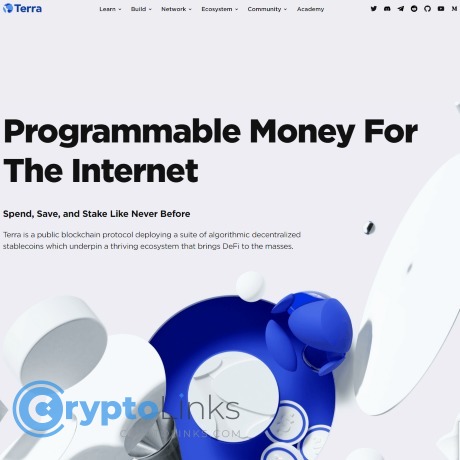Solana Website Review
Solana is a blockchain platform interconnected with the blockchain.
It is an open-source project originally founded in 2017.
The Solana protocol is specifically developed as a means of facilitating decentralized application (dApp) creation.
It aims to improve scalability through the introduction of the Proof-of-History (PoH) consensus, which is combined with the underlying Proof-of-Stake (PoS) consensus of the blockchain.
With the rise in interest surrounding cryptocurrencies as a whole throughout the past few years, there have been numerous new blockchain networks that aim to be competitors to the ones that have a high market capitalization.
Solana was launched in 2017 as the main competitor to blockchain networks such as Ethereum. It is a highly-functional, open-source project that banks on blockchain technology's permissionless nature as a means of providing decentralized finance (DeFi) solutions.
Today, we are going to go over just about everything that you need to know surrounding the Solana network as we take a look over its website, history, and functionality, and go over some of the pros, as well as some of the cons surrounding the project. Let's dive in.
Solana Website
When you enter the Solana website for the very first time, you are introduced to an amazing animation that consistently loops in the background, showcasing an infinite loop. On the top navigation bar, you have the official SOLANA logo on the right side of the screen, written in all caps. On the left side of the screen, however, you have multiple other categories and websites that you can visit. We will be starting from those.
First, there is the Developers page, which takes you to multiple other sub-pages.
Here, you have resources, such as developer resources, NFTs, DeFi, Gaming, Payments, and DAOs.
Then there's the learning category, which takes you to multiple pages, including the Solana Cookbook, SolDev, Solana Docs, and Metaplex Docs.
Then there are the guides and tutorials, out of which the highlighted ones are:
- Figment Learn
- Questbook x Superteam
- Intro to Building Solana Programs
- Intro To Anchor Framework
- A Guide to Full Stack Development on Solana
- Intro to Solana Blockchain Concepts
Aside from these three categories, you also have careers where you can see all of the available positions on the Solana project.
Next to all of this, you will be able to easily find the Network category, which is also split across four sub-categories, including:
- Inspect - this includes Solscan, Explorer, Solanabeach, and Stake Distribution.
- Status - this includes network status and email alerts.
- Interact - this includes environment and RPC providers.
Then there's the Validator page, which will give you the data that showcases how many validators are running the network at the time of your arrival.
Then there is the community section, which is split across four categories in total.
- The first is the community tab, which has home, events, breakpoint, and branding.
- Then there’s the content tab, which has news, podcast, YouTube, and the newsletter.
- Then there is the socials category, which gives you links to the Twitter page, the Discord page, the Reddit page, and the Telegram page.
- Last, there’s the collective page, which will give you the ability to join the collective.
The Solana Collective is a program that helps Solana supporters contribute to the overall ecosystem and work with core teams. What this essentially means is that anyone can help out and gain numerous benefits.
On the far right of the screen, there is the Ecosystem page.
This will take you to another page, where you can discover the hottest projects that are developed on Solana.
This is split across multiple categories, such as the trending projects of the month, the top DeFi projects, the top lending protocols, and the top NFT marketplaces, as well as the top Web3 apps. You can also sort the Solana-based dApps based on popularity or by the latest projects.
With all of this in mind, we can move on towards looking at the main page.
This page is far from minimal when it comes to its overall design, as it has numerous UI elements that are fully animated.








